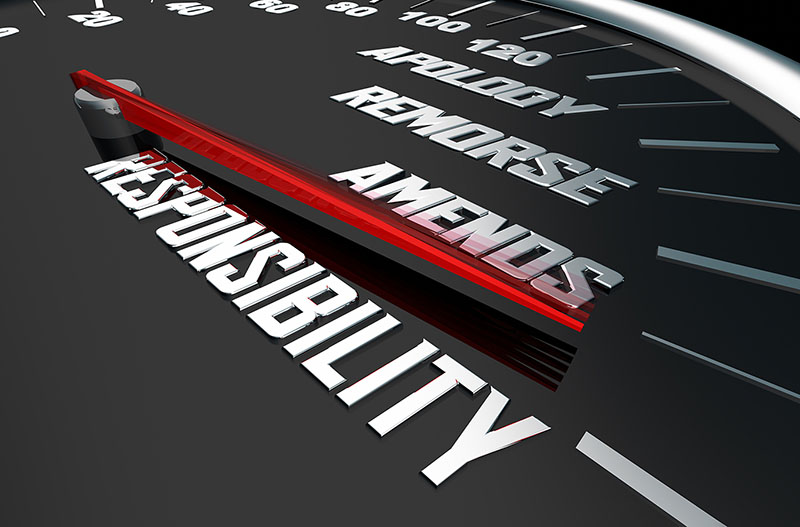You’ve apologized. They don’t accept. Now what?
This can be an all-too-common, difficult and sometimes awkward situation, whether it’s with your partner, family, friends, or even in mediation.
In this video, we talk about some strategies to help you move forward after you’ve offered an apology, but the other person isn’t receptive. At least not yet.
Video Transcript Follows:
“You’re not sorry.”
“I don’t believe you.”
“You’re just saying that.”
Let’s talk about what happens after you offer an apology?
Hi I’m Erik Feig, mediator and founder of Feig Mediation Group in Bethesda Maryland.
In my last video, we talked about the difference between an “I’m sorry I” apology and an “I’m sorry you” apology (you can find the prior video on the Feig Mediation Group YouTube channel or on my blog at www.feigmediationgroup.com).
Now, I would like to talk with you about your part in what happens next. You’ve apologized. For purposes of this conversation, I’m going to assume that your apology is genuine – We can save the discussion about what to do with apologies that weren’t authentic for another day).
You’ve done your part. Now, from your perspective, it’s their turn to respond.
Three possibilities: They accept it, they reject it, or they don’t really give you an answer. For now let’s focus on the first two options.
The first option is the most straightforward: apology accepted. I’ll offer one thought to keep in mind: When you are in a position to accept an apology, keep it simple:
“Thank you.”
“I appreciate it.”
“It means a lot to me.”
Then pause … give some space before you move on to anything else.
The more words you use, the more the acceptance gets cluttered with other stuff, the greater the chance that the acceptance itself – and its importance – can get lost.
Once you accept an apology, move on. Find a way for you both to move forward.
So what if your apology isn’t accepted?
This can be a jarring experience – especially if the rejection is coupled with a criticism or some unhelpful comment that creates greater distance between you.
“If you really meant to apologize, you would have…”
“You call that an apology? ”
“I don’t believe you’re sorry.”
If the other person is not willing – or ready – to receive your apology, you may hear responses like thes.
Those words can be painful – you’ve just offered an apology and they reject you?
This can be a difficult situation – its not unusual that people in those moments would want to lash out in response – to give in to that temptation to want someone else to feel hurt too.
There is a vulnerability when you apologize. It can take a great deal of effort – and when that effort feels discounted and rejected, your own defense mechanisms may try to jump into action.
Don’t underestimate the pull that this can create.
My suggestion – before you do anything in those moments – pause. Slow yourself down. Resist the temptation to respond in kind. Break the pattern.
What can this do for you? When you’ve offered an apology you are asking for forgiveness. Recognize that in those situations that you can only control your part in the interaction. You can’t control their response. You can’t demand that they feel how you hope – you want them to feel.
Let me repeat that. You can only control your part. You can’t control their response. You can’t demand that they feel how you want them to feel. You can’t demand forgiveness. You can only ask for it.
You can set the stage. You can’t write their script.
Forgiveness and reconciliation is a process. They may not be at a point where they are open to really hearing you or process what you’re saying. They may not know how to move past the hurt THEY FEEL – and be caught up in a cycle of conflict that is hard for them to break.
All of that is on their side of the ledger. Feeling hurt is hard. Feeling rejected is hard – I want to acknowledge that for people who struggle with rejection sensitivity, this is a particular challenge.
Being able to pause in the moment, to look beneath the surface to see what’s really going on, can be difficult – whether you are asking for forgiveness or being asked to grant it. But it’s a skill that you can practice. That’s worth practicing.
It’s important to recognize that sometimes, all you can do is your own part.
And to recognize that whatever comes next, you’ve taken your step. It’s up to them to decide what theirs will be.
We’ll talk more about this in future videos.
I want to thank you for joining me.
And if you’re considering mediation to help you with issues or conflicts that may be difficult to address on your own, or if you are interested in learning more about our practice, visit us at our website at www.feigmediationgroup.com to set up a free consultation.
I’m Erik Feig, I’m looking forward to seeing you next time.

